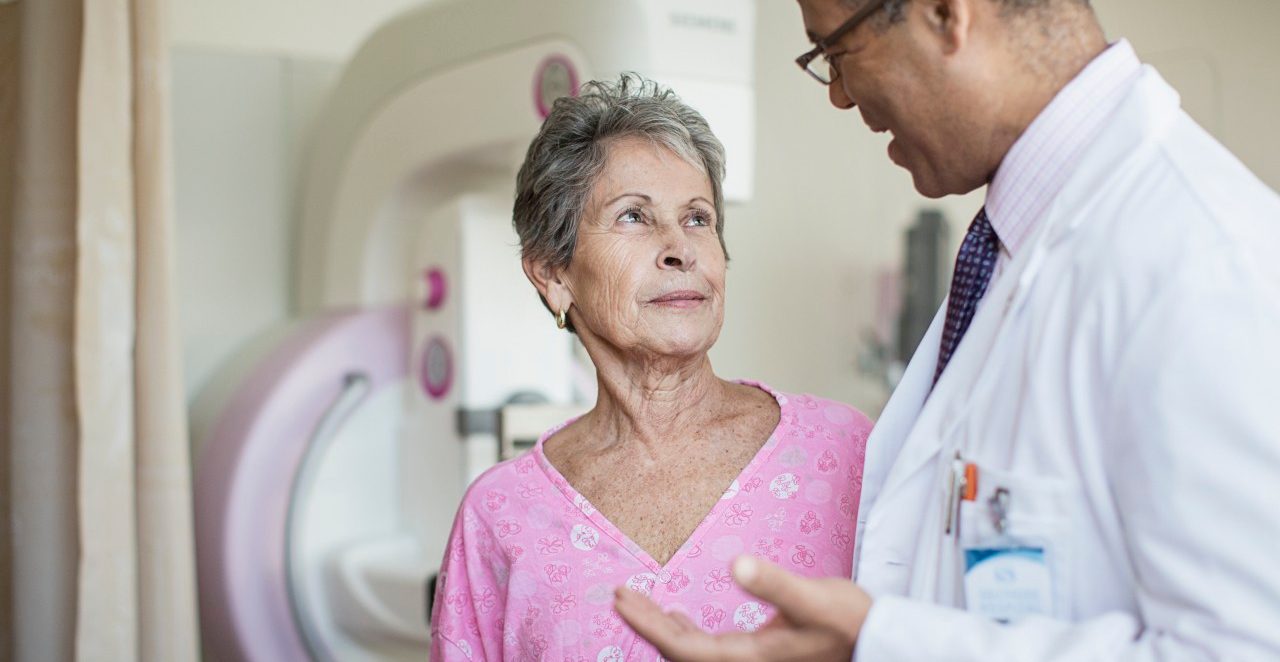10 Questions to Ask Your Doctor About Cancer

Patients cope better when they have the right information about their cancer and treatment options. Here are questions to ask a doctor about your cancer.
You have been diagnosed with cancer. A tornado of questions swirls through your mind, but fear and anxiety make it difficult to focus on exactly what you need to know.
Yet, that very knowledge will help you be an active participant in your care, a partner in maintaining your well-being, and a patient who can make rational decisions.
YOU MIGHT ALSO LIKE: Why Cancer Treatment Should Include Psychological Help
What you can do
To bring that tornado under control, start thinking about priorities: What are the core questions you need answered?
Mostly, they will be centered on specific information about your type of cancer, your treatment options, what to expect during your treatment, and your recovery.
Writing those questions down before you meet with your doctor will lower your stress level and help you get the most from your consultation.
Studies have shown that people with cancer who are well informed about their disease and treatment options “usually have better outcomes and fewer side effects than those who simply follow their doctor’s orders,” according to the American Society of Clinical Oncology (ASCO).
When thinking about the questions you want to ask your doctor, the ASCO recommends considering how much information you want. Some patients feel overwhelmed with extensive medical details, while others want to have as much information as possible. What’s more, cancer is not one disease, and the questions you want and need to ask your doctor depend on your specific diagnosis.
Questions to ask your doctor about cancer
Here are 10 suggested questions to ask your oncologist about diagnosis and treatment, based on recommendations from the ASCO, the American Cancer Society (ACS), and the National Cancer Institute (NCI).
- What kind of cancer do I have? There are more than 120 types of cancer, and many have sub-types. Talking to your doctor about your exact diagnosis can help you understand what treatments may be necessary.
- What stage is my cancer? The stage of a cancer describes how much cancer is in a person’s body, where it is located, and if it has spread. The stage of your cancer — whether it is in an early stage or more advanced — is an important factor in planning your treatment
- What are the ways to treat my type and stage of cancer? What are the benefits and risks of each of these treatments? Many factors, in addition to the stage of any cancer, determine the best therapy options for each cancer patient, the ACS explains. Ask what treatment your doctor recommends for you and why, the NCI advises.
- Will I be in pain? It’s helpful to openly discuss with your doctor your concerns about discomfort, pain, and other possible side effects associated with your cancer. Ask how they can be handled. Learning that pain specialists are part of your cancer treatment team and how they help patients can ease worries.
- Should I take or continue using supplements (vitamins, minerals, herbs)? It’s important to share any concerns you have about your diet and nutrition status — that includes asking your doctor about safety and efficacy of any vitamins, minerals, and herbal supplements you may be taking.
- When do I need to start treatment — and will I be in the hospital or treated as an out-patient? The answers to these questions depend on the type of cancer treatment you are receiving and your general health.
- What is my chance of recovery with this treatment? How will you know if the treatment is working? While cancer remains a significant cause of mortality, there’s reason to be hopeful about cancer treatment. In fact, the risk of dying from cancer in the U.S. has decreased dramatically over the past 28 years, according to annual statistics reported by the ACS. Talk to your doctor about your concerns and how and when you will need additional tests to see if you need more or different treatments.
- When should I tell my family and friends? That is a very personal decision that only you can make. It makes sense, however, that your closest family members and friends know first, so they can be fully informed about the cancer and your treatment plan and provide relevant support.
- How will cancer treatment affect my daily life? Some cancer treatments can be debilitating, to some degree, for many patients. Much depends on your specific case. Talk to your doctor about whether you will likely be able to continue working during treatment. Will you be able to exercise? Ask about how much support you may need during and after treatment.
- What cancer support services are available? Be sure to ask your doctor about services available where you are being treated and within your community. The ACS has a dedicated 24-hour phone line (800-227-2345), which provides free information about patient resources in communities across the U.S.
Updated:
February 24, 2022
Reviewed By:
Christopher Nystuen, MD, MBA and Janet O'Dell, RN